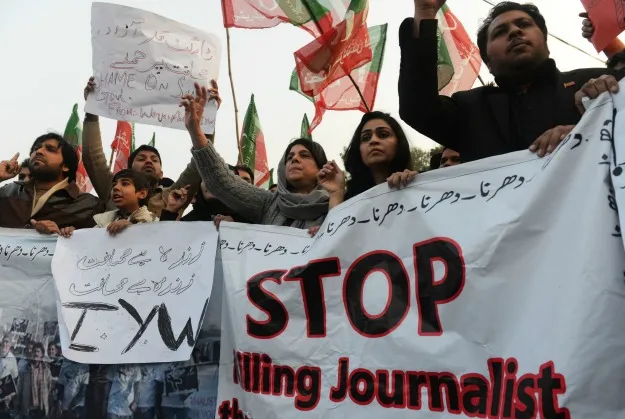Five years after the merger of former Fata with KP, threats to freedom of expression, journalists, and journalism—persistent since the ‘war on terror’ era—continue unabated. Ongoing terrorist attacks have stymied the promised progress from the merger, leaving journalists to navigate a perilous landscape. The state, society, government policies, and tribal attitudes still heavily influence the media, fostering an oppressive environment characterized by suspicion and fear. This securitized backdrop has stifled opportunities for peace, dialogue, and development, leaving the region entrenched in a conservative and combative tribal mindset.
The insecurity has become a persistent issue. The challenges faced by journalists in former Fata since 9/11 remain, with the region still dangerous and volatile. The recent deaths of journalists Hayat Dawar and Khalil Jibran highlight the ongoing risks. Lacking adequate support from the state and media organizations, journalists are left to fend for themselves amid hostility from various actors, including state institutions and militant groups. As one tribal journalist put it, “Without safety, there is no true journalism, only controlled information.”
Accessing information has become increasingly difficult due to displacement, threats, and mobility issues. This has led to a concentration of information within the security establishment and district authorities, making independent verification challenging. The culture of secrecy and intelligence-gathering has deepened since 2001, with media control reinforcing state narratives and fostering an environment lacking transparency and accountability.
The gap between citizens and the state in the tribal districts has widened, with the media’s role restricted to promoting government narratives rather than fostering genuine dialogue. The strategic communication framework used by mainstream media focuses on advancing government views and undermines independent journalism, which could facilitate meaningful discussions on development and security.
The lack of support from media organizations has further endangered journalists, who are left exposed in a region suffering from ongoing conflict and instability. The focus on conflict in media coverage has overshadowed critical issues and hindered the development that the merger was supposed to bring. This focus has reinforced the political economy of war, benefiting unaccountable interests at the expense of regional progress.
The merger was intended to transform the region, but the failure to ensure freedom of expression and information has perpetuated old repressive practices under a new guise, allowing undemocratic forces to gain a stronger foothold.




